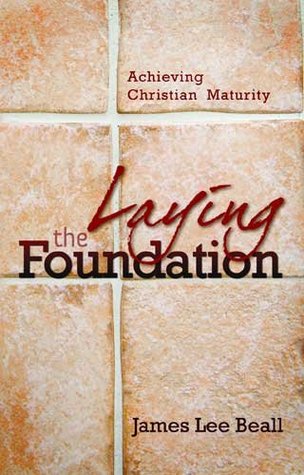Kindle Notes & Highlights
Noah invested 120 years building the ark, when no one had ever seen rain before.
Moses refused to remain identified with Egypt, but chose to become a part of God’s suffering people because he believed God’s promise of deliverance.
Jeremiah purchased the field of Anathoth immediately after prophesying Judah’s 70 years of captivity in Babylon.
He believed they would again return to the land according to God’s word. He expressed his confidence by purchasing real estate.
1. Is the Study of John the Baptist and His Baptism Important?
A. John fulfilled Isaiah’s promise of a voice to prepare the Messiah’s way.
B. John fulfilled Malachi’s promise of a herald or forerunner before the Messiah.
C. John came with a special ability from God to draw people to repentance.
This anointing from God gave John a special ability to stir the hearts of parents and children alike and to lead them to repentance.
D. John brought the old Covenant dispensation to an end.
2. What Was the Primary Message of John the Baptist?
John preached the same gospel Jesus preached—the gospel of the kingdom. The kingdom is the sphere of God’s rule. To enter this kingdom you must prepare yourself by means of repentance and baptism. If you believed the message, you obeyed it. For this reason, the most common words used by John were, “Repent, for the kingdom of God is at hand” (Matthew 3:2; 4:17).
A. People were to repent of reliance upon religious traditions (dead works).
John’s authority to minister was not from the religious leaders but from God himself.
B. People were to demonstrate their repentance of heart by submitting to baptism.
C. This baptism was in itself a public confession of sin and repentance.
Submission to John’s baptism was not just a popular religious fad. It cost something. By
stepping into that muddy river, you were announcing to everyone that Judaism with its dead forms had not profited you. You were a sinner and needed God to do something on the inside to make you different. You were required not only to verbally confess specific sins to John upon being baptized, but the baptism itself declared that you recognized your whole root to be no good. You wanted God to lay His axe against the cause of sin in you.
3. Were People Actually Forgiven Their Sins When They Were Baptized by John?
Yes. Those who entered the waters of baptism with true repentance and faith experienced the benefits of the coming Messiah.
The word “remission” is the Greek word, aphesis, which we have a...
This highlight has been truncated due to consecutive passage length restrictions.
“sending away, release, fo...
This highlight has been truncated due to consecutive passage length restrictions.
A. John was pointing toward the Lamb of God.
B. Continued benefit from John’s baptism required continuance into Jesus’ kingdom.
John’s ministry was transitional. Its purpose was to break up the strength of religious
tradition and to make people ready to hear a fresh ...
This highlight has been truncated due to consecutive passage length restrictions.
4. What Was the Benefit of John’s Ministry?
A. They were familiar with the meaning of water baptism.
B. They knew to expect the gift of the Holy Spirit.
John very much opposed Jesus’ being baptized by him. He recognized who He was and realized that since He was without sin, He also needed no repentance. Also John recognized that since Jesus had greater authority from God, the roles of ministry should have been reversed. But God had a reason for it all.
2. What Important Lessons Do We Learn From Israel’s Passage Through the Red Sea?
The Bible clearly teaches that Israel’s passage through the Red Sea was a baptism and typifies baptism into Christ.
There are a number of important lessons to be learned here:
A. Baptism is a memorial.
A person is baptized in water because of the death of Christ. Christ died for him. Now by faith he is identify...
This highlight has been truncated due to consecutive passage length restrictions.
B. Baptism involves a confession.
We have confessed our sins and our need. We have confessed that we not only commit sinful acts, but we are by nature sinners. Now we have been forgiven and freed from our sins.
C. Baptism declares a solemn determination.
When we rise from the waters of baptism, it is declaration and determination to be finished with sin We are embracing a new life and leaving the old behind We realize that in no way is it possible to return to bondage.
D. Baptism announces a separation.
The power behind our habitual sin is broken.
Baptism should and must be our announcement of separation from sin and from the world.
E. Baptism means accepting a new identity.
We are no longer a sinner but a “saint.” We are set apart to...
This highlight has been truncated due to consecutive passage length restrictions.
We no longer belong to ourselves but to Jesus Christ to whom we present ourselves as living s...
This highlight has been truncated due to consecutive passage length restrictions.
Our spirit, soul, body, mind—everything bel...
This highlight has been truncated due to consecutive passage length restrictions.
Our friends fit the person we have become in Christ.
3. With Whom Do We Become Associated Through Water Baptism?


